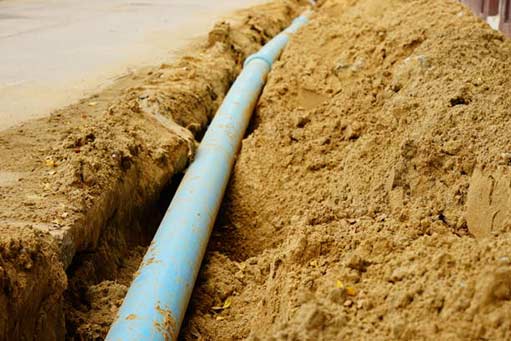Common Questions About Residential Sewer Lines in Chicago
Whether you’re a homeowner in the city or planning to move to Chicago, it’s important to have a good understanding of sewer systems and how they work. Below we’ll cover common concerns, maintenance tips, and important information regarding residential sewer lines in the beautiful city of Chicago.
1. What is a residential sewer line?
A residential sewer line, also known as a house sewer, is the underground pipe system that carries wastewater from your home’s plumbing fixtures to the sewer main in the street or an adjacent alley. It connects your property to the municipal sewer system, ensuring proper waste disposal.
2. How do I know if there is a problem with my sewer line?
There are several signs that may indicate a problem with your residential sewer line. These include:
- Frequent toilet clogs
- Slow draining sinks, showers, or tubs
- Gurgling noises coming from drains
- Foul odors in your yard or home
- Sewage backups or water pooling in the basement or yard
If you notice any of these signs, it’s crucial to contact a professional plumber specializing in residential sewer line repairs.
3. How often should I have my sewer line inspected?
While there isn’t a specific timeframe for sewer line inspections, it’s recommended to have your home sewer line camera inspected every 1-2 years, especially if you live in an older home or an area with a history of sewer line issues. Regular inspections can help identify potential problems before they escalate and prevent major repairs in the future.
4. Can tree roots damage my sewer line?
Yes, tree roots can infiltrate and damage residential sewer lines. As trees grow, their roots naturally seek sources of water, including sewer pipes. Over time, tree roots can cause cracks and blockages, leading to sewer line backups. It’s advisable to plant trees away from sewer lines and have a professional inspect and trim tree roots near your sewer line regularly.
5. How can I prevent sewer line clogs?
Preventing sewer line clogs involves practicing good plumbing habits. Here are some tips:
- Avoid flushing non-biodegradable items such as wipes, diapers, and feminine hygiene products down the toilet.
- Dispose of cooking grease and oils in the trash rather than pouring them down the sink.
- Install drain screens or traps to catch debris and prevent it from entering your sewer line.
- Avoid excessive use of chemical drain cleaners as they can damage your pipes.
- Regularly maintain your gutters and downspouts to prevent debris from entering the sewer system.
6. What should I do if there is a sewer line backup?
In the event of a sewer line backup, it’s essential to take immediate action. Follow these steps:
- Turn off the water supply to your home to prevent further backups.
- Avoid using any plumbing fixtures until the issue is resolved.
- Contact a professional plumber who specializes in sewer line repairs.
- Avoid trying to fix the problem yourself as it may cause further damage.
7. What are the common causes of sewer line damage?
Several factors can contribute to sewer line damage, including:
- Age and deterioration of pipes
- Tree roots infiltrating the pipes
- Ground movement or shifting soil
- Accumulation of grease, debris, or foreign objects
- Extreme temperature changes
- Improper installation or previous repairs
Understanding these causes can help you take preventive measures and ensure the longevity of your residential sewer line.
8. Do I need a permit to repair or replace my sewer line?
Yes, in Chicago, a permit is required to repair or replace a residential sewer line. It’s important to consult with the Chicago Department of Buildings to obtain the necessary permits and ensure compliance with the city’s regulations.
In Conclusion
Residential sewer lines play a vital role in maintaining a clean and healthy environment in Chicago. By understanding the basics of sewer line systems, recognizing signs of potential issues, and following good plumbing practices, you can help prevent costly repairs and ensure the proper functioning of your home’s sewer system. Remember to reach out to professional plumbers for any concerns or repairs related to your residential sewer line. Stay informed, take proactive steps, and enjoy a hassle-free sewage system in the windy city!
